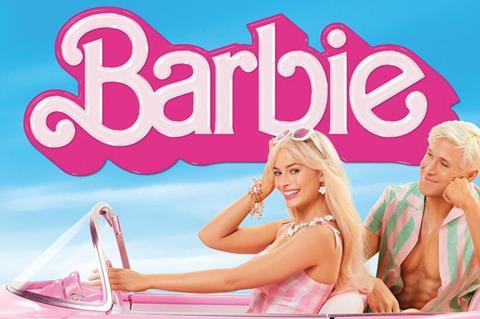More than just a parade in pink, Barbie asks some deep questions about what it means to be human, with all its flaws and limitations. But where it lacks answers, Christ provides says Beth Card

Contains spoilers
It would be easy to watch Barbie and only take away the message that girls should be able to be whoever they want to be without judgment or obstacle. A 90-minute feminist romp with girl power speeches and a chance to see a land where women run the world. Job done.
More on that later if you want it.
But perhaps the film’s bigger message is that life is not perfect. Not the real world or Barbie Land. At the end of the movie, Barbie chooses to be a human, because she has experienced what it is like to cry, to want to make a difference; to have relationships that require effort. She chooses to leave behind a world of fakery and experience something more genuine, even though she knows it will be harder and that, one day, she will die.
We cannot make our world perfect. Whatever you do or don’t do with your life, the only thing that matters eternally is knowing Jesus
There are good aspects to this message. The film tells us that death is a reality and that the world isn’t perfect. It tells us to stop portraying our lives as faultless when we’re actually (frequently) upset about things. It teaches us that it’s OK to question why we’re here, whether we’re meeting our full potential or whether our relationships are good or going anywhere.
A plan and a purpose
But although Barbie accurately portrays the realities of a broken world, ultimately, it lacks biblical hope. As Christians, we know life can be tough, but heaven and perfection await us. We know suffering leads to our sanctification; we know Jesus understands our pain; and we know everything is happening for the glory of God.
The film also speaks to our human design as creators and workers, and our need for a purpose. In Barbie Land, everything is finished; there is no work to do. But Barbie leans towards a life in the real world, as she feels she has a purpose there.
We all need purpose. It’s good to have goals, but placing our ultimate hope in this is risky. You can spend your whole life trying to change society or reaching your dream and it can still be taken away. Only the return of Jesus can truly mend things. Placing our identity in anything apart from God can set us up for disappointment and failure.
Equal in power
The message of Barbie is that the real world is ruled by men. Women don’t hold senior roles at work, and are instead relegated to being pretty and perfect and serving men’s needs. There are obviously elements of truth in this portrayal – as well as elements of exaggeration and a considerable lack of nuance.
In terms of the exaggeration, I can’t help but think that a woman from the Middle Ages (or even the 1950s) would be amazed at the jobs and opportunities that women have today. The examples of inequality shown in the film - an all-male company board, women being ignored and men being respected more – do still happen. At the same time, it isn’t all bad news. The fact we’ve had three female prime ministers speaks to this.
Inequality is bad for men too. Ken struggles to know his place in Barbie Land. He is defined solely by his relationship with Barbie, something that is acknowledged within the message of the film as unhealthy.
The female-led Barbie Land shown at the beginning perpetuates the misconception that women are not just equal but better. An equal society is good. But frequently, what people actually want is domination in reverse. Although this isn’t how the film concludes, it may well be the message that viewers leave with. Feminism has no room for allowing men to be better at any point, allowing the right men to lead on merit or for women to ever submit. Of course some say this is simply correcting an over-dominance that has existed for centuries, but why correct when we could simply try to live out God’s plan of servant heartedness and putting others above ourselves?
Asking the big questions
Barbie is a film that rightly raises questions about our very existence, and helpfully asks us to really think about why we are here and what our purpose is. But ultimately, it provides only one solution: society, which is too male-dominated, must be changed. Not everything about this idea is wrong. Equality is a worthy goal, but while having a female US president would be a brilliant thing, only Jesus can really mend everything.
We cannot make our world perfect. Whatever you do or don’t do with your life, the only thing that matters eternally is knowing Jesus.
And while we’re comparing, heaven won’t be like Barbie Land – a boring place where everything is perfect. The Bible tells us that we will work, but our work will be fruitful and not laboursome. And it won’t be like Barbie Land because neither women nor men will rule it – Jesus will.
Doing Barbenheimer? Read our review of Christopher Nolan’s most political film to date here

































1 Reader's comment